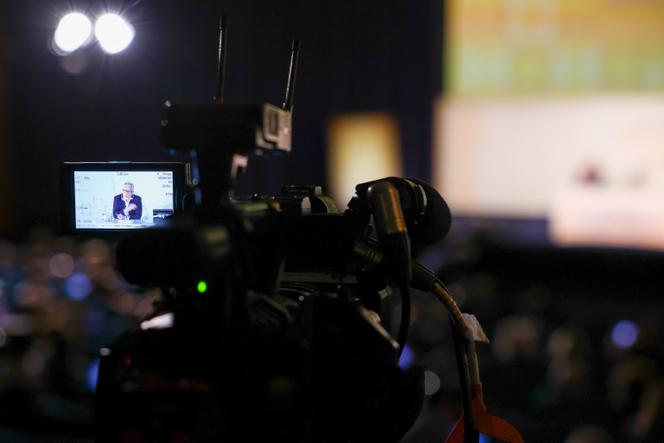


The message sent to journalists present on Saturday, April 11, in the grand hall of a giant UGC cinema chain on the Champs-Elysées in Paris couldn't have been clearer: "Iris and the whole team have decided that the festival will be peaceful, pacified, joyful, generous and we'll only talk about cinema." These words served as the conclusion to the press conference that Thierry Frémaux, the director of the Cannes Film Festival, had just given in the presence of the festival's president, Iris Knobloch. The Official Selection for the 77th edition of the event had just been revealed. In the meantime, everyone was kindly invited to leave: The festival's director was taking no questions.
The wish had been expressed in that firm – and slightly ironic – tone Frémaux is so familiar with. He knew what journalists wanted, was the suggestion. And that the news cycle is quick to darken the festivities and crack the veneer of legendary glamour. A global sounding board whose reach extends beyond the big screen, the Cannes Film Festival has always been, since its creation, criss-crossed by the political struggles of its time.
Those political struggles include the fight for gender parity in cinema, support for imprisoned Iranian filmmakers – and 2024 will provide yet another somber occasion with the five-year prison sentence for Mohammad Rasoulof, whose new film, The Seed of the Sacred Fig, will compete for the Palme d'or – or more recently the solidarity shown toward Ukraine since Russia's invasion in 2022. And, of course, since 2017 and the fall of American producer Harvey Weinstein, once king on the Croisette, which he had made a place of honor and predation, the #MeToo wave and its multiple aftershocks have continuously been present. It's an area where the Festival is now under the microscope, with every misstep, or supposed misstep, tarnishing the duty of exemplarity that its status imposes.
At the last edition, the inclusion of Catherine Corsini's Le Retour (The Return) in competition created its share of controversy. The film had been left on the sidelines following allegations of irregularities and harassment on the set but was eventually reinstated due to the absence of any legally or morally reprehensible events. The arrival of actor Johnny Depp for the première of Maïwenn's film Jeanne du Barry, fresh from his trial for accusations of domestic violence on Amber Heard, had not gone unnoticed either.
The 2024 edition will be no exception. Since April 11 and Frémaux's wishful thinking, it's not so much the films in selection that have been the talk of the town as the outpouring of speeches, revelations and testimonials about everything that cinema can no longer sweep under the carpet: the sexual assaults suffered by women, and also men, in cinema who are increasingly daring to testify and file complaints.
You have 62.65% of this article left to read. The rest is for subscribers only.
